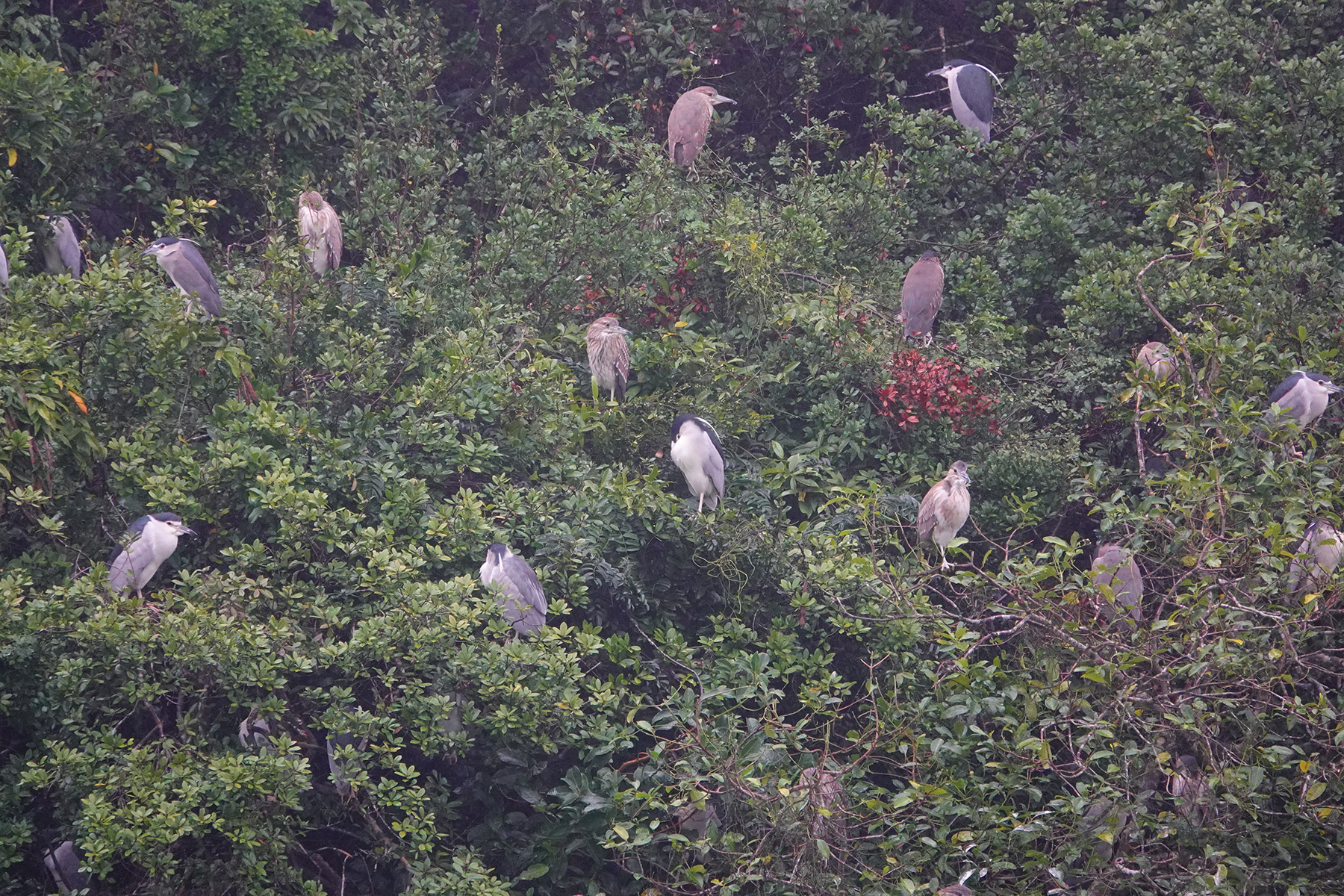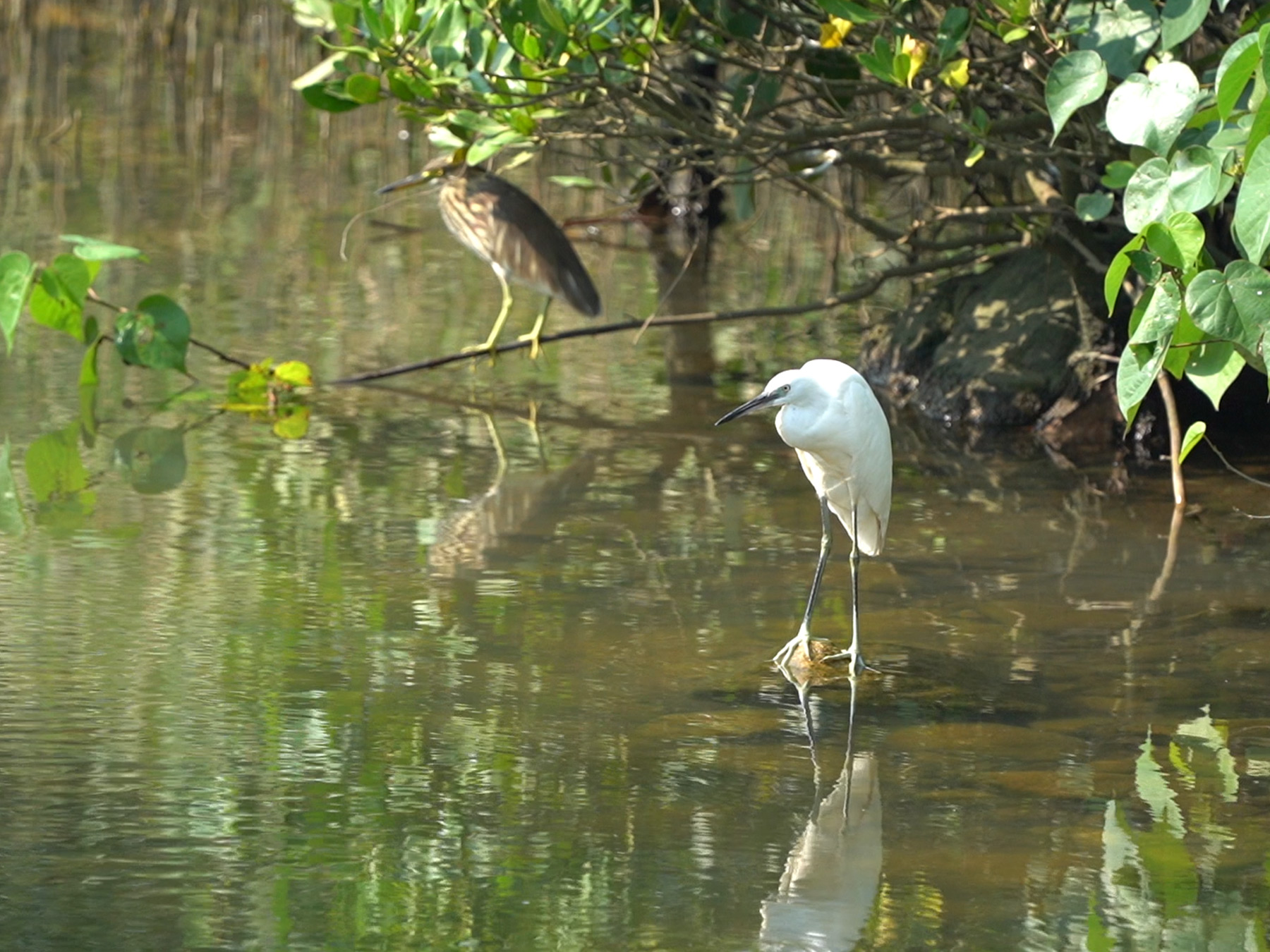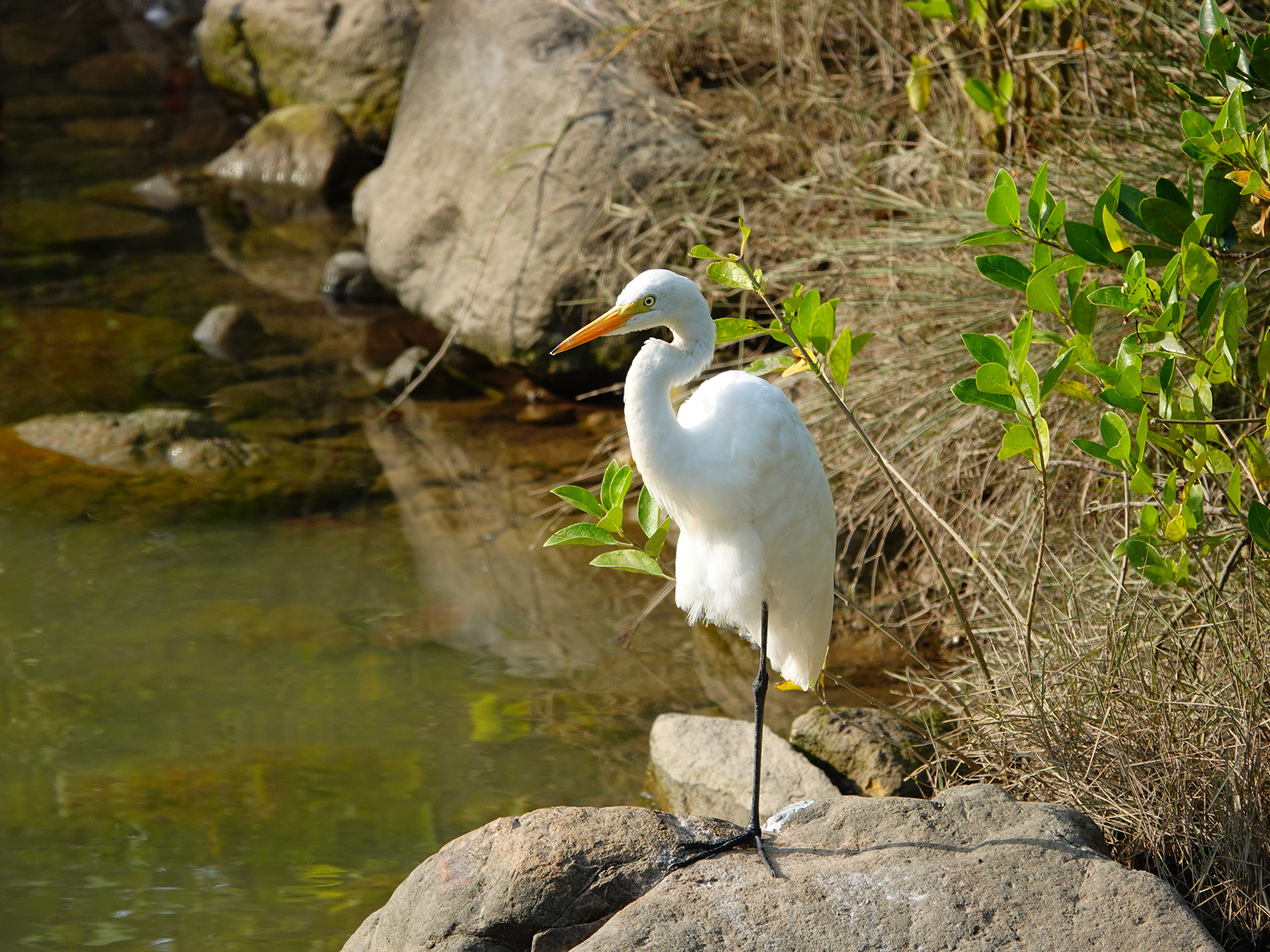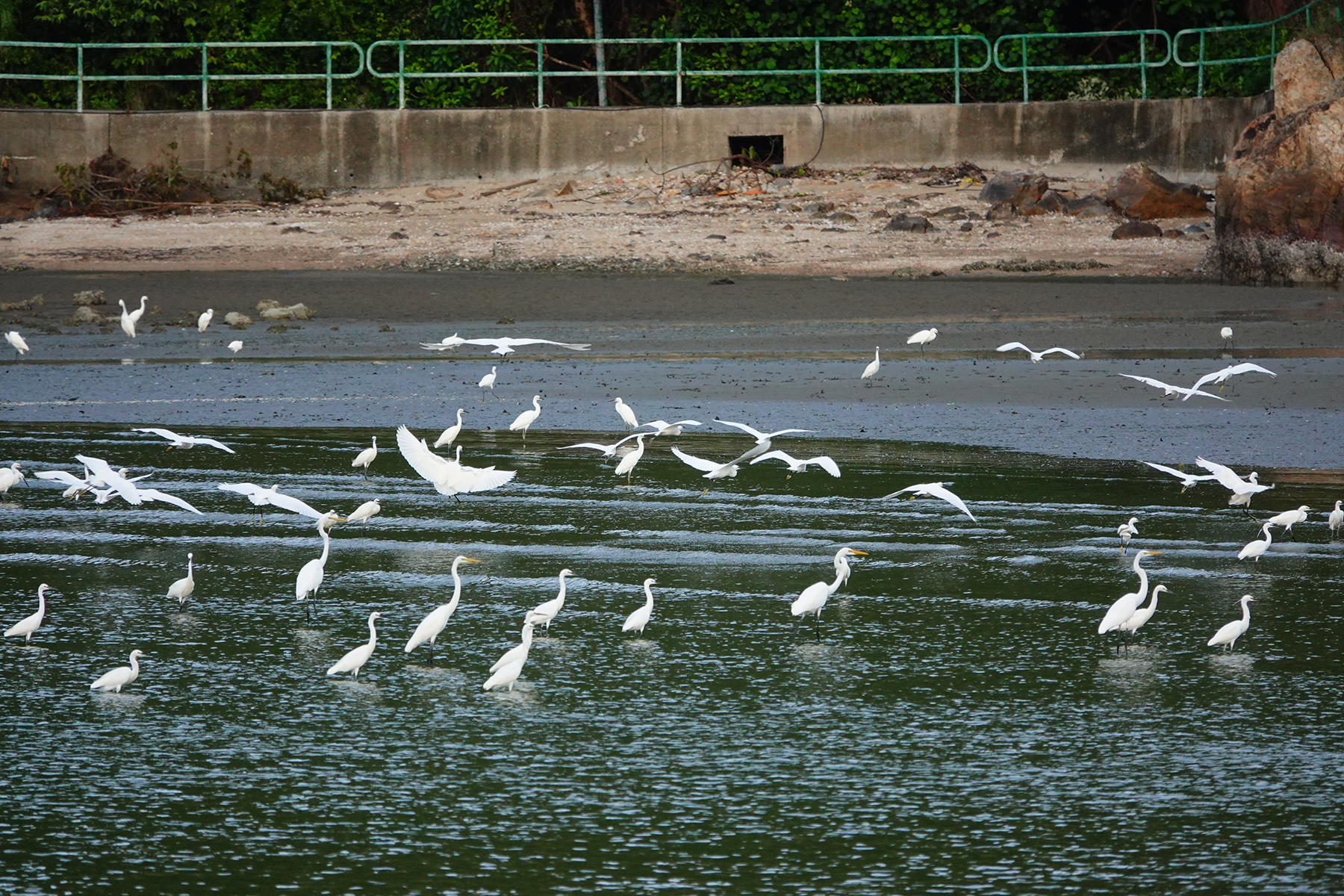During winter, Hong Kong welcomes a large number of migratory birds from the north, including various kinds of ardeids, such as Little Egret (Egretta garzetta), Intermediate Egret (Ardea intermedia), Great Egret (Ardea alba), Chinese Pond Heron (Ardeola bacchus), Eastern Cattle Egret (Bubulcus coromandus), Grey Heron (Ardea cinerea), and Black-crowned Night Heron (Nycticorax nycticorax). When we travel abroad, we will look for hotels to stay in. Winter migratory birds visiting Hong Kong will also choose some suitable "hostels" during their journey as supply stops and wintering grounds.
Different bird species have different roosting preferences. Ardeids have a penchant for living in groups. There are many reasons for their gregariousness. Apart from protection against predators, it is also said that living in groups facilitates them to exchange information about foraging spots, much like travellers staying in the same hotel sharing travel information.
Migratory ardeids have very high requirements for "hostels", especially in terms of location. Generally speaking, the "hostels" should not be far away from water sources (such as ponds, rivers and seas) and should be located in a place with towering trees. A favourable geographic location can effectively enhance their foraging efficiency. Ardeids forage individually during the day and return to rest in the tree canopies at dusk. A single "hostel" can accommodate a dozen to hundreds of ardeids. Given the abundance of suitable foraging grounds for these ardeids in the southern waters of Hong Kong and the presence of dense trees along the coast of Lantau Island, many migratory ardeids are attracted to roost and congregate in this area.
The migration of these travellers is a remarkable ecological phenomenon. Every winter, these "hostels" become very busy with the arrival of migrating ardeids. In the summer, when the migrating birds leave, the "hostels" become quiet again. It's a cycle of vibrant energy and serene calm. As humble hosts to these long-distance travellers, let's treat our guests with utmost respect. When we traverse their habitats, be sure not to disturb their peaceful sojourn.



